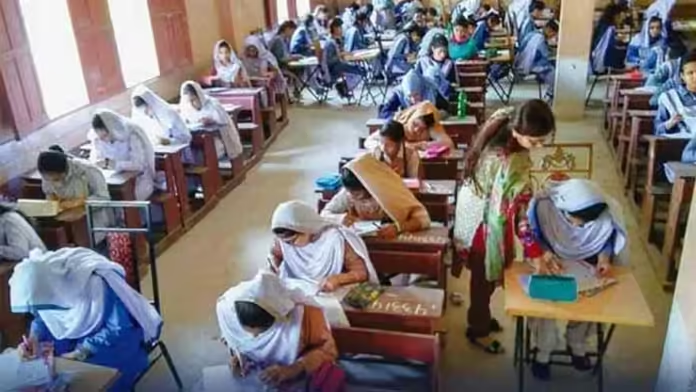A New Era Dawns: Punjab Education Approves Board Exams for Grades 5 and 8
In a historical step towards elevating the quality of education, the Punjab government has officially decided to introduce board-style exams for Grade 5 and Grade 8 students province-wide. This was solidified during a crucial cabinet meeting, which was presided over by Chief Minister Maryam Nawaz, who referred to the reform as a “revolutionary step in education.”
This education policy change will apply to all students both public and private school students providing a seamless and harmonized evaluation system in Punjab.
Why the Reform? Bridging the Educational Divide
Punjab education reform is not merely about implementing new exams it’s about creating parity and fairness in student evaluations. By requiring board-style examinations, the government wants to:
- Standardized academic assessment across institutions
- Remove gaps between public and private schooling systems
- Foster accountability in teaching practices and curriculum teaching
- Foster quality education through competitive learning environments
Chief Minister Maryam Nawaz also stressed that this is not just a policy choice it’s a revolutionizing initiative. “This step will result in transparent performance assessment and the standards of education in Punjab will be raised,” she said during the cabinet meeting.
A Path with a Plan: Expectations
The Punjab Education Department will now be responsible for shaping the overall framework of these new board exams. This involves:
- Finalizing the schedule of exams
- Creating uniform syllabi and model papers
- The coordination with examination boards as well as school authorities
- Teacher training as well as preparation for the exams
Officials have promised that the roll-out would be done in phases, leaving adequate time for schools, teachers, and students to settle down to the new model.
Impact on Students, Teachers, and Schools
This ambitious change in education will have long-term impacts at every level of the educational hierarchy:
Students will be incentivized to study with more concentration now that performance will be externally tested.
Teachers will have better parameters and will be encouraged to set up their teaching practices in accordance with specified standards.
Schools will have to ensure consistency in course delivery and results.
By establishing a province-wide norm, the government aims to see to it that all children in Punjab, irrespective of their socio-economic status, get equal chances of educational development and success.
Support and Criticism: A Mixed Reception
While most parents and teachers have welcomed the move as timely and much-needed, some critics have raised issues. Doubts are raised about whether the education system is prepared to make such a sweeping change. Issues relating to student stress, logistical readiness, and the administrative load on schools have emerged.
But education officials insist that all these are being introduced in planned and phased manners. The goal is not to overload the students, but to advance the quality of learning and make the education system more competitive and credible.
A Bold Step Toward Educational Equality
The Punjab education reform is a turning point in the province’s educational future. Implementing board-type exams at the earliest stages of education is a bold but much-needed step to conform to world standards of education and end endemic disparities in academic tests.
With this new policy, Punjab has indicated its commitment to placing reform in education at the forefront as the key pillar of advancement. As the framework evolves, everyone will be watching how the province threads the needle between ambition and delivery in transforming its education system.
Come back to Pakistan Updates for updates on this and other across-the-board education reforms.




